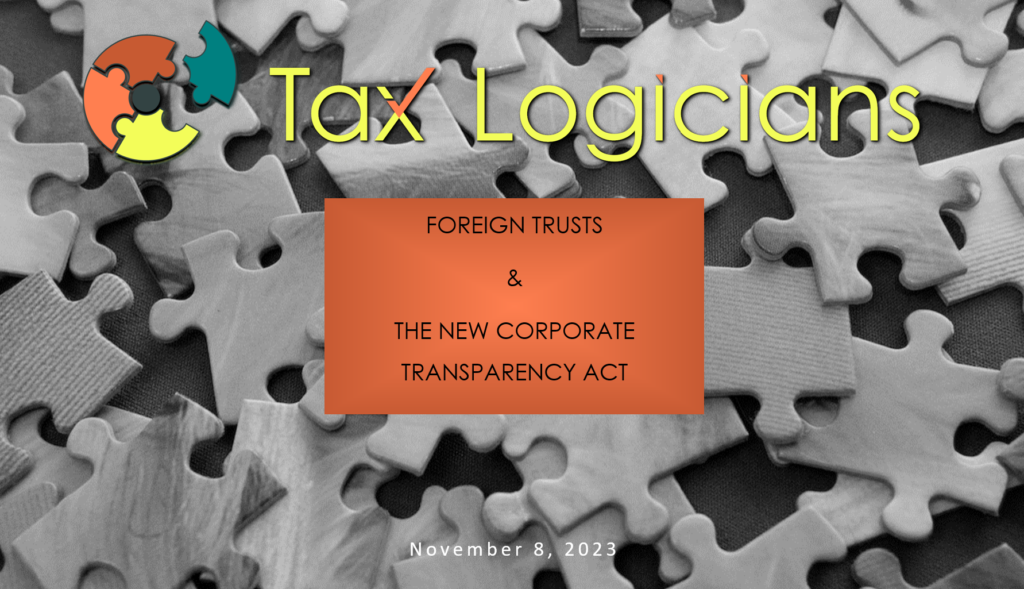Let’s have a look at what Substantial Control under the CTA really is about. If you want a refresher on the CTA, have a look at this overview: What is the CTA? – Tax Logicians.
The CTA requires the disclosure of the ultimate Beneficial Owners of all US business entities, such as corporations, certain LLCs, certain trusts, and other corporate type entities which are deemed Reporting Companies. Basic identifying information of the Beneficial Owners must be reported to FinCEN, a division of the US Department of Treasury.
For further reading, the FinCEN maintains a factsheet webpage summarizing the CTA at: Beneficial Ownership Information Reporting Rule Fact Sheet | FinCEN.gov.
Who is a Beneficial Owner?
With respect to a Reporting Entity, an individual who, directly or indirectly, through any contract, arrangement, understanding, relationship, or otherwise either:
-
- owns or controls not less than 25 percent of the ownership interests of the entity; or
-
- exercises substantial control over the entity.
Economic Interest
Having an economic interest in a Reporting Entity is the more straightforward method of determining if someone is a Beneficial Owner or not. If someone has a 25 percent or greater interest in a reporting entity, then they are a Beneficial Owner.
The intended goal of the CTA is to combat money laundering and similar illegal activities. To do this, it will seek to identify all the ultimate individual (warm body) beneficial owners of US entities.
Substantial Control
Includes anyone with either direct or indirect control over certain defined functions and operations of a Reporting Entity; additionally, the proposed regulations include a catch clause granting FinCEN discretion to determine what constitutes Substantial Control beyond the guidelines provided in the regulations (“[…] Has any other form of substantial control over the reporting company.”
A non-exhaustive list of defined forms of Substantial Control is provided in the regulations as any person with direction, determination, of or substantial influence over:
-
- The nature, scope, and attributes of the business of the reporting company, including the sale, lease, mortgage, or other transfer of any principal assets of the reporting company;
-
- The reorganization, dissolution, or merger of the reporting company;
-
- Major expenditures or investments, issuances of any equity, incurrence of any significant debt, or approval of the operating budget of the reporting company;
-
- The selection or termination of business lines or ventures, or geographic focus, of the reporting company;
-
- Compensation schemes and incentive programs for senior officers;
-
- The entry into or termination, or the fulfillment or non-fulfillment of significant contracts; and
-
- Amendments of any substantial governance documents of the reporting company, including the articles of incorporation or similar formation documents, bylaws, and significant policies or procedures.
Grantor Powers
The various powers (or circumstances of transfer) addressed in IRC §§671-679 whereby an individual is treated as the owner of a trust or portion of a trust for US income tax purposes can result in such individual being determined as having Substantial Control.



